MercoPress. South Atlantic News Agency
Tag: Dow Jones Industrial Average
-
Saturday, March 9th 2019 - 09:01 UTC
Job creation in the US remains but labor demand is softening

US economy created the lowest number of jobs for a year-and-a-half in February, well below forecasts. Just 20,000 new jobs were created last month against expectations of a 180,000 increase, official figures show.
-
Wednesday, June 20th 2018 - 08:37 UTC
General Electric loses its place in the Dow Jones average after more than 100 years
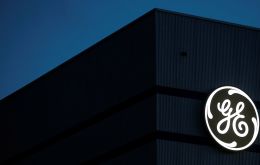
General Electric is losing its place on the Dow Jones Industrial Average after more than 100 years in a move that reflects a fall in the firm's fortunes and changes to the US economy. Walgreens Boots Alliance is to take its spot on the financial index, which tracks shares of 30 companies deemed representative of the US economy. The change takes effect on 26 June.
-
Wednesday, February 7th 2018 - 14:41 UTC
Oil Prices Ravaged By Financial Turmoil
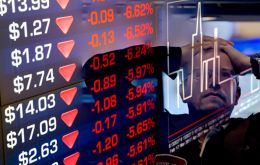
By Nick Cunningham of Oilprice.com
Oil prices fell back suddenly over the last few trading sessions, dragged down by some forces beyond the oil market. -
Saturday, February 3rd 2018 - 10:53 UTC
US markets suffer their steepest decline since June 2016. Dow Jones fell 2.5%

The blue chip Dow Jones Industrial Average suffered its steepest decline since June 2016 on Friday, amid wider losses in United States markets. The fall came after a string of disappointing earnings reports from giants such as Apple.
-
Friday, November 11th 2016 - 08:08 UTC
Dow Jones reverses trend after Trump's victory
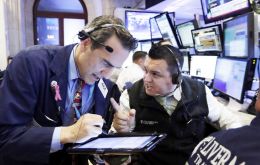
The Dow Jones index climbed more than 300 points (1.5 percent), by the afternoon, coming back from an abrupt 750-point plunge as election results came in. Stock markets reversed overnight losses stemming from the shock of Donald Trump's upset victory and and the Dow Jones Industrial Average soared to what would be a record closing high as investors assimilated the implications of the Republican return to the White House.
-
Thursday, October 9th 2014 - 07:17 UTC
“Easy money” will be around for some time still, say Fed's minutes
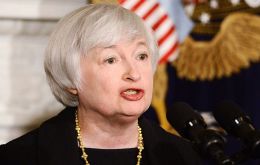
US markets rose sharply after minutes from the September meeting of the Federal Reserve were released. The transcript indicated that US central bankers were wary of raising rates too soon. Officials were worried markets were too focused on a rate rise happening during a specific period of time.
-
Friday, July 4th 2014 - 06:34 UTC
US unemployment down to 6.1% and the Dow Jones at 17.000 for first time

US economy added 288,000 jobs in June, latest figures from the Bureau of Labor Statistics have shown. The unemployment rate dropped to 6.1%, its lowest level since September 2008.
-
Thursday, December 19th 2013 - 06:01 UTC
Fed announces gradual conditioned tapering of stimuli from next January
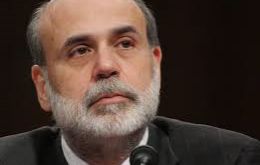
The U.S. Federal Reserve will start scaling back its monthly bond-buying program as early as next month, but the reduction will be gradual. The Federal Reserve has been buying 85 billion dollars a month in government bonds in an effort to keep interest rates low and boost economic growth.
-
Thursday, August 11th 2011 - 06:57 UTC
Euro debt problems trigger hyper volatility in sensitive world markets
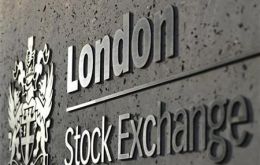
Asian shares were mixed on Thursday as fears about the European debt crisis overshadowed the region's growth prospects. Japan's Nikkei 225 index was down 1.3%, with Hong Kong's Hang Seng also dropping by 1.5%.
-
Tuesday, August 9th 2011 - 07:37 UTC
Gold soars to 1.700 dollars as world markets are on free-fall fearing recession

Asian equity markets were sharply down early Tuesday as investors fearing a possible global economic slowdown continued to flee stocks as had happened earlier in Europe, United States and Latin America.
